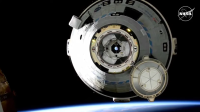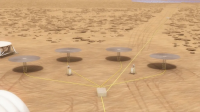A consortium backed by the European Union revealed on Thursday its efforts to develop state-of-the-art sensors aimed at enhancing satellite navigation capabilities and extending drone operational ranges.
The INPHOMIR project, supported by a 5 million euro ($5.38 million) investment from Horizon Europe, seeks to introduce two innovative ultra-low-power sensors—a specialized lidar sensor and an optical gyroscope.
These advancements are intended to address challenges faced by satellite navigation systems in adverse conditions such as low visibility and environmental interference.
Project coordinator Daniele Palaferri emphasized the potential impact of these advancements, stating, “The advanced sensing technologies we are developing will hopefully enhance the accuracy of satellite positioning, improve navigation for interplanetary missions, and ensure the success of space exploration.” The project utilizes indium phosphide technology to integrate sensors into photonic integrated circuits, known for their efficiency and compactness, potentially extending their applications to drones and autonomous vehicles in the future.
The initiative comes amidst a surge in satellite deployments driven by increasing demand for communication services and data collection, which has compounded navigation challenges in space.
The technology also aims to mitigate risks posed by orbital debris, a growing concern for satellite operators aiming to maintain operational integrity.







